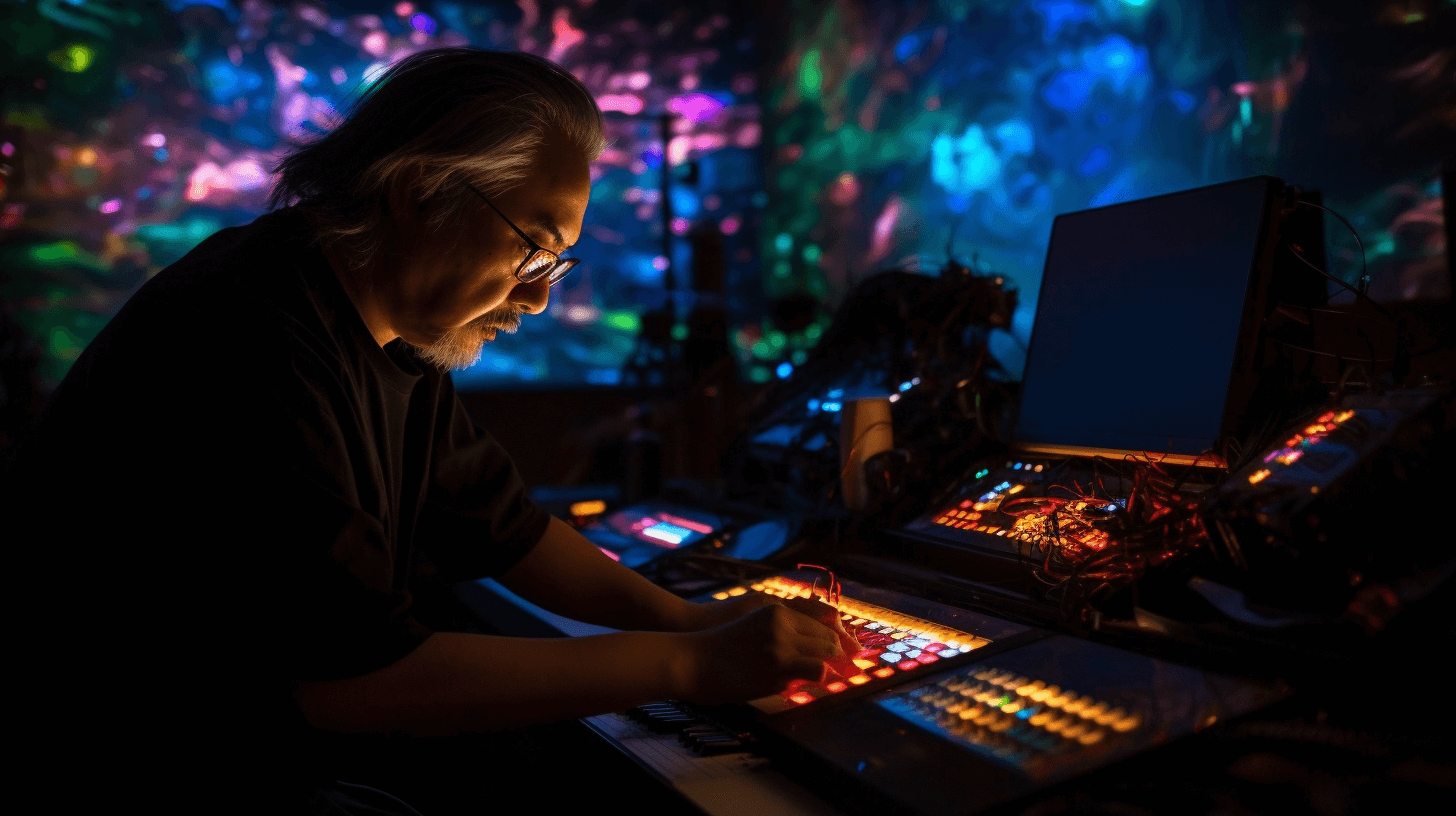Nobuo Uematsu: The Maestro Behind the Gaming Symphony
Japanese video game music composer Nobuo Uematsu hard at work in his studio in Japan, imagined by Midjourney
Introduction
In the realm of video game music, few names are as celebrated or influential as Nobuo Uematsu. His enchanting melodies and emotionally charged compositions have defined the soundtracks of numerous games, most notably the "Final Fantasy" series. This article takes a deep dive into Uematsu's musical legacy and the broader impact of music on gaming experiences.
The Musical Journey of Nobuo Uematsu
Nobuo Uematsu's journey into the world of gaming started in the mid-80s when he joined Square (now Square Enix). Uematsu was primarily self-taught, his musical style blending classical, rock, and traditional Japanese music elements into a unique tapestry of sound that would come to define the auditory experience of many iconic video games.
His breakthrough moment came with his work on the original "Final Fantasy" in 1987. The score, characterized by its melodic depth and emotional resonance, proved to be a game-changer, quite literally. It not only set the tone for the franchise but also elevated the role of music in video games.
For more info, see Nobuo Uematsu: The Life of a Video Game Music Legend
The Art and Impact of Uematsu's Music
Uematsu’s talent lies in his ability to evoke a wide range of emotions through his music, breathing life into the pixels on the screen and augmenting the storytelling of the games. From the ominous dread of "One-Winged Angel" in "Final Fantasy VII" to the uplifting optimism of "To Zanarkand" in "Final Fantasy X," Uematsu's scores encapsulate the narrative highs and lows of these epic games, creating a lasting bond between players and characters.
His compositions aren't just background scores, but vital elements of the gaming experience. They help establish the setting, enhance the emotional weight of narrative events, and even signal gameplay cues. Each note and melody contribute to the immersive experience video games strive to achieve.
For more info, see Nobuo Uematsu's Influence on the Video Game Industry
Music's Pivotal Role in Gaming Experiences
The impact of music on gaming goes beyond Uematsu's influential work. Music plays a critical role in video games, often overlooked but vital for enriching the gaming experience.
Immersion and Emotional Connection: Music helps to create immersive environments that transport players into the game's world. The right music can heighten the emotional impact of a scene, creating a deeper connection between players and the game.
Gameplay Dynamics: Music can serve functional purposes, too, acting as cues for gameplay actions or signaling changes in a game’s environment. Whether it's a rousing battle theme or the eerie silence of a suspenseful moment, soundtracks contribute to the dynamics of gameplay.
Memorable Themes: Iconic themes, like Uematsu’s "Final Fantasy" compositions, become synonymous with the games themselves, making them instantly recognizable and increasing their cultural impact.
For more info, see The Psychology of Video Game Music
The Future of Game Music: A Symphony Unending
As technology evolves, so too does the role of music in video games. Adaptive music, which changes in response to in-game events and player actions, is becoming more prevalent, creating even more dynamic and immersive experiences.
Moreover, composers like Uematsu continue to push the boundaries of game music, bridging the gap between video game soundtracks and traditional music. Concerts featuring game music, like the "Distant Worlds: Music from Final Fantasy" tour, showcase the widespread appreciation and cultural impact of these compositions.
For more info, see Video Game Music is Now a Regular Part of Classic FM's Playlist
Nobuo Uematsu: The Unseen Hero of Gaming
Nobuo Uematsu's impact on the world of gaming extends beyond his beautiful compositions. His work underscores the critical role music plays in shaping gaming experiences, from heightening emotional engagement to signaling gameplay dynamics. As we look to the future of gaming, one thing remains certain: the symphony of gaming, led by maestros like Uematsu, will continue to enrich our digital adventures.

